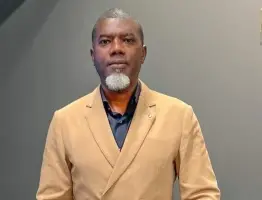In a remarkable development that has stunned the medical community and the Saudi royal family, Prince Al-Waleed bin Khaled, known as Saudi Arabia's "Sleeping Prince," has reportedly regained consciousness after spending more than two decades in a coma.
The prince, who suffered severe injuries and fractures in a car accident in London in 2005 while attending military college, had been in a vegetative state for over 20 years. The accident resulted in a traumatic brain injury and severe brain hemorrhage that left medical experts pessimistic about his recovery prospects.
Family's Unwavering Faith
Despite recommendations from doctors to remove life support, Prince Al-Waleed's family, particularly his father Prince Khaled bin Talal Al Saud, refused to give up hope. His father reportedly spent years at his son's bedside, maintaining faith that he would eventually recover consciousness.
The news of Prince Al-Waleed's awakening has left his father speechless, according to sources close to the family. The prince, who celebrated his 36th birthday on April 18th this year while still in a coma, comes from one of the most influential royal lineages in Saudi Arabia as the great-grandson of King Abdulaziz, the founder of modern Saudi Arabia.
A Journey of Minimal Progress
Throughout his two-decade coma, Prince Al-Waleed occasionally showed minimal movements, such as finger twitching or subtle head turns. These small signs kept the family's hopes alive despite the overwhelming medical odds against significant recovery.
His story has captivated many around the world, symbolizing the power of hope, perseverance, and faith. The family's unwavering commitment to his care has become a powerful testament to loyalty and love in the face of seemingly insurmountable challenges.
Medical Implications
The prince's recovery also highlights how access to extensive financial resources can sometimes make a critical difference in medical outcomes. The royal family's ability to provide continuous specialized care for over two decades may have contributed to this extraordinary development.
Medical experts note that recoveries from such prolonged comatose states are extremely rare, making Prince Al-Waleed's case potentially significant for neurological research and treatment protocols for patients with severe brain injuries.
As news of this remarkable recovery spreads, many have expressed joy with the Arabic phrase "Alhamdulillah shukran" (Thanks be to God), reflecting the spiritual significance many attach to this medical miracle.
Stay updated with more breaking news by following BenriNews on our social media channels:











